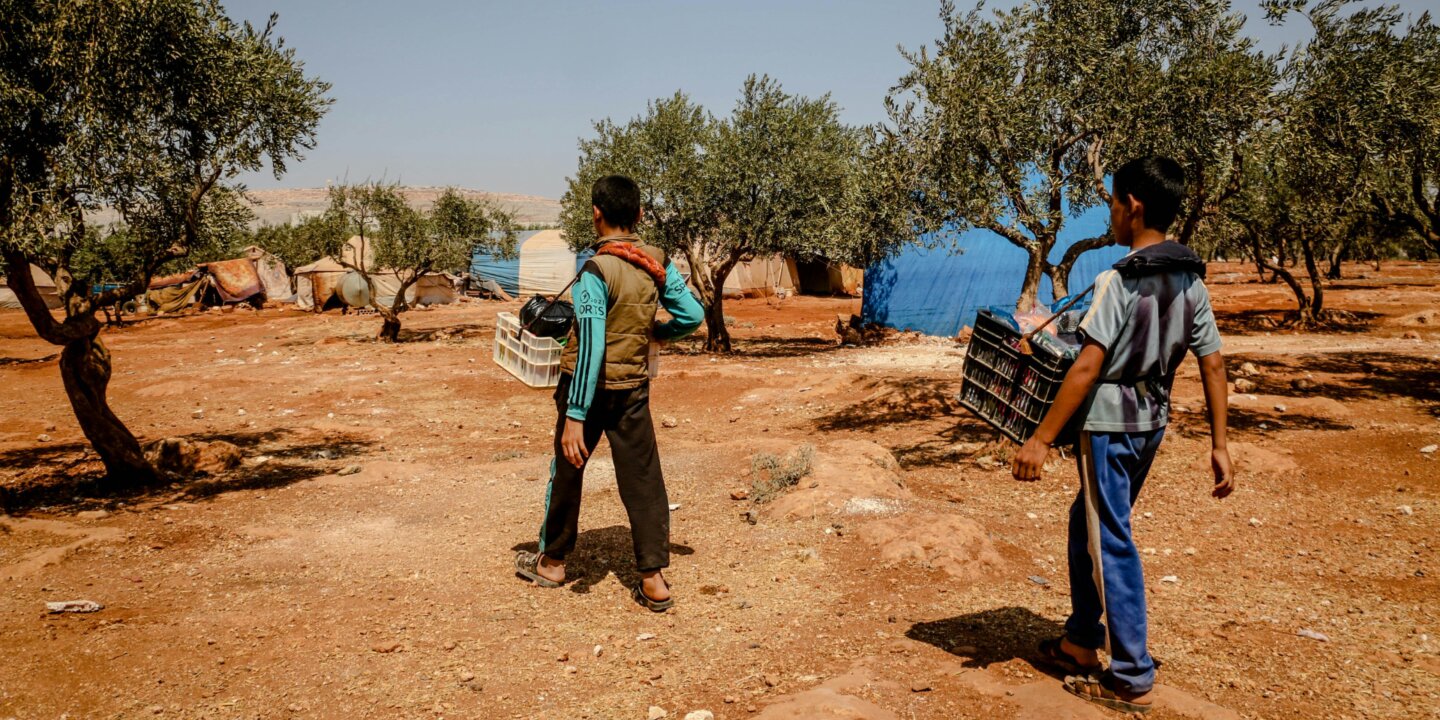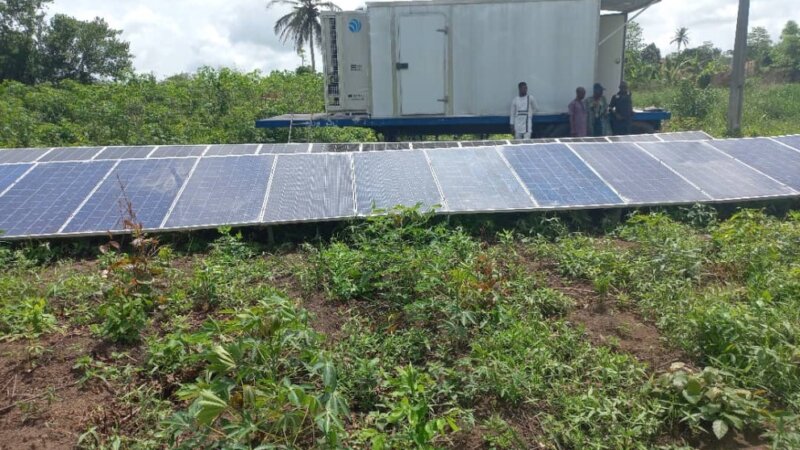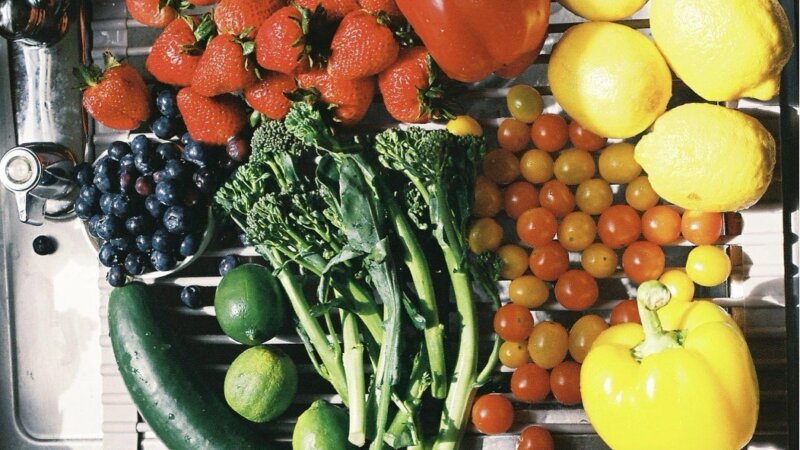CoP Food Security & Stability Library

Photo Credit: Ahmed Akacha
Over the past 9 years, NFP (previously under the Food & Business Knowledge Platform) has explored sustainable pathways forward in the food security–stability nexus through the Community of Practice (CoP) on Food Security & Stability. Spurred by the growing recognition that conflict and instability are key drivers of rising global hunger, this CoP was formed to explore how and which food security interventions can contribute to more resilient households, communities, and food systems.
This work would not have been possible without the close collaboration of our partners. Together with The Ministry of Foreign Affairs, Ministry of Agriculture Fisheries Food Security and Nature, Wageningen University & Research, ZOA, FAO, WFP, WCDI, Mercy Corps, CARE, Cordaid, KUNO, and many others, we shaped and advanced this agenda.
In 2017, an initial project on Food Security & Stability was piloted. Following this, a learning agenda was developed together with the community in 2019. During the same period, the CoP was linked to the FNS-REPRO programme as a learning partner. In the years that followed, the Food Security & Stability CoP organised various learning activities along the learning agenda and strengthened through its partnership with the FNS-PREPRO programme. As new developments unfolded, including the UN Food Systems Summit and the onset of the war in Ukraine, the CoP adapted by launching new initiatives to address the shifting dynamics in food security and stability.
While the formal CoP initiative is coming to an end this year, our work on this topic will not. Nor will our findings be lost. This library captures the key activities and insights from the CoP’s work, and it is intended to serve as something that others can reference and build upon in ongoing and future projects.
The library is organised around six thematic areas that guided the CoP’s work:
1. Food security, stability and conflict sensitivity
2. Market-driven interventions in fragile- and conflict-affected settings
3. UNSC Resolution 2417 & Food systems resilience in protracted crises
4. Food systems governance in fragile and conflict-affected settings
5. Adaptiveness and flexibility
6. Scenario thinking and monitoring: Covid-19 and the Ukraine war
1. Food security, stability and conflict sensitivity
This trajectory began with the assumption held by many in the FNS space: that food security programming and stability are linked. Yet there was little evidence to confirm or clarify this connection. At the MoFA's request, the CoP explored the relationship between food security programming and stability, driven by a desire to ensure that programmes were contributing positively, not inadvertently doing harm.
- 2016: A scoping study examined the evidence base on food security and stability linkages, revealing a critical gap in empirical data and underscoring the importance of context.
- 2018: A research report and conflict sensitivity guide were developed and launched in a workshop hosted by the CoP. Based on the main findings of the study, the guide offers a practical method for integrating conflict sensitivity into food security programming and was later applied in programme design processes.
- 2019: In the lead up to the Food Systems Summit, the Ministry of Foreign Affairs commissioned a discussion paper on indicators for the nexus between food systems and stability. It identified a range of governance- and access-related indicators that could signal pathways towards stability. Many of these indicators remain highly relevant today.
This research ultimately led to the formation of the CoP and its learning agenda. The findings promoted a shift in the CoP's focus: from pursuing stability as a direct outcome, to embedding conflict sensitivity as a guiding principle for more effective, responsible programming.
2. Market-driven interventions in fragile- and conflict-affected settings
One of the central questions posed in the learning agenda was whether and how market-based approaches could contribute to food security in fragile- and conflict-affected settings. In these contexts, where traditional aid often dominates and private sector engagement is limited, what role can market systems development play? What barriers stand in the way? Through this trajectory, the CoP explored the viability of promoting market-driven agricultural development and the potential for engaging the private sector despite significant risks and structural constraints.
- 2019: NFP organised a scoping session with CoP stakeholders, bringing together actors across sectors to evaluate the state of market-driven interventions in fragile- and conflict-affected settings, identifying current approaches and pinpointing key challenges and opportunities.
- 2020: Following up on the first session, a workshop was co-organised with Mercy Corps, focusing on a more practical, intervention focused perspective. The event convened policy and practice actors to examine market systems development in fragile settings, highlighting promising cases and common constraints.
- 2020: To consolidate insights and provide a practical resource for practitioners and policymakers, the CoP commissioned a research report and accompanying policy brief exploring how market approaches could function in humanitarian-development-peace (HDP) contexts. The report illustrated that engaging the private sector was already yielding promising results. These findings helped shift the conversation around aid and trade in fragile settings, contributing to broader policy and programming debates on the HDP nexus.
When this trajectory began, market-based approaches were still met with skepticism in mainstream aid and policy spaces. Through its early work, the CoP helped frame the emerging debate and laid groundwork for what has since become a more widely accepted approach.
3. UNSC Resolution 2417 & Food systems resilience in protracted crises
Between 2018 and 2023, NFP collaborated with the the Ministry of Foreign Affairs (MFA) and Wageningen Centre for Development Innovation (WCDI) in the Food & Nutrition Security REsilience PROgramme (FNS-REPRO) as a learning partner to facilitate the knowledge brokering process, while incorporating the insights gained from the programme to the CoP Food Security and Stability. FNS-REPRO was implemented in light of UNSC Resolution 2417 on conflict-induced food insecurity, and strove to link humanitarian and development efforts in unstable regions through adaptive programming.
- 2018: NFP’s involvement in the topic was kicked off with a scoping paper and workshop on Resolution 2417 and local food systems in the Humanitarian-Development Nexus. The paper and discussion reinforced the need for integrated, flexible, and context-sensitive approaches to food security in protracted crises. This underscored the importance of local engagement, coordination across sectors, and adaptability in programming.
- 2018: Later that year, NFP joined a scoping mission to the Horn of Africa along with the MFA and WCDI. The mission shed light on the region-specific challenges faced in North Darfur and Somaliland and how these affect the trajectory for recovery. It brought together the partners of the REPRO programme and served as input to develop the programme. These insights also helped shape the early development of the CoP's engagement with FNS-REPRO.
- 2020: Building on the progress made by FNS-REPRO up to that point, NFP and WCDI organised a learning exchange along with CARE, Cordaid and ZOA to explore whether a food systems resilience approach could strengthen work in the food security and peace nexus and lead to more sustainable outcomes. The key takeaways of this session highlight the importance of co-creation, multi-level governance, and the need to operationalise food systems resilience to make it actionable in protracted crises.
- 2021: Months later, NFP, Food and Agriculture Organisation (FAO), and WCDI co-organised an Independent Dialogue for the Food Systems Summit, in which participants discussed the added value of a food systems resilience approach and remaining challenges in implementation.
- 2021: Building on the conclusions from the previous two activities, NFP, CDI, CARE, Cordaid and ZOA published a joint paper, delving deeper into the potential of the food systems resilience approach from a local programming perspective. It explores the added value of a food systems approach through three perspectives: 1) ongoing transformation and innovation in the aid sector; 2) how it adds value as a concept; and 3) emerging evidence and lessons from current food systems resilience programming.
- 2022: As FNS-REPRO entered its final year, WCDI and NFP, with the help of the Food Security & Stability community, facilitated a week of strategic consultation and exchange events. These gatherings engaged stakeholders in reflecting on emerging insights, fostering knowledge-sharing, and advancing the agenda for building resilient food systems in protracted crisis settings.
- 2023: Spurred by the insights and remaining challenges that emerged from the activities exploring the resilient food systems approach, NFP worked alongside the REPRO programme and a group of organisations including Cordaid, CARE, ZOA, and TearFund, to explore how the approach could be applied in real-world settings. Through research and multi-stakeholder dialogues, this collaboration led to two reports examining practical pathways in Western Bahr el Ghazal and Eastern Equatoria of South Sudan.
By the end of the CoP’s engagement with FNS-REPRO, practitioners were working to apply emerging insights. Yet food systems governance surfaced as a recurring challenge. This prompted the CoP to explore this issue further, using its accumulated expertise on the subject.
4. Food systems governance in fragile and conflict-affected settings
Flowing out of the collaboration with the FNS-REPRO programme, NFP built on the relationships and insights developed and hosted the Transformation Talks. The REPRO work highlighted that, while national pathways and food security interventions were gaining traction, a key piece was missing: a better understanding of how food systems governance can work in protracted crises. Beyond formal government roles, governance here refers to how diverse actors come together to guide, influence, and catalyse food systems change. The Transformation Talks were a series of sessions that dove into the practical application of food systems resilience in South Sudan.
2023: The first session explored what food systems governance could look like in South Sudan and the possible points of entry for change. Panelists illustrated the complexity of food systems governance and highlighted key opportunities in South Sudan.
2023: Taking a practical turn, the second session highlighted three live cases of food systems governance efforts currently underway in Western Bahr el Ghazal and Eastern Equatoria. The cases showed that systems change hinges on tailored strategies, while participant collaboration revealed the power of local ownership and targeted tools to shift governance norms.
2024: The third and final session synthesised learnings from the first two and turned into action, with participants identifying concrete steps they could take within their own roles to support food systems transformation.
These dialogues helped anchor the CoP's broader work in a food systems governance perspective, showing how shared responsibility can drive long-term transformation.
5. Adaptiveness and flexibility
In fragile settings, conditions can shift rapidly, yet programmes are often perceived as too rigid to adapt effectively. This trajectory emerged in response to growing calls from local actors and practitioners to make programming more flexible. The CoP focused on understanding how greater flexibility could strengthen impact in volatile environments and what it would take to embed adaptiveness more systematically into programme design and implementation.
2019: A practice note introduced Adaptive Programme Management (APM) in fragile settings, outlining key strategies, rationales, and examples from the field.
2020: After the Covid-19 pandemic exposed the limitations of rigid frameworks, adaptive programming rose to the top of the agenda. In response, the CoP hosted a workshop exploring lessons from case studies in Somalia, Burundi, and Ethiopia.
2022: In an effort to clarify whether flexibility was truly lacking in programme design or simply underused, the CoP examined food security programmes in fragile contexts. The findings informed a report and two practical guides, offering targeted recommendations to both donors and implementors on building flexibility into programming.
Adaptiveness and flexibility remain essential; however, universal guidance has its limits. Moving forward, meaningful progress will require reflection on the forms of support practitioners and programme designers need in a specific context to enable flexibility in practice.
6. Scenario thinking and monitoring: Covid-19 and the Ukraine war
These activities emerged in direct response to global shocks that shaped food security discourse in real time. The CoP recognised the importance of pausing to address such developments, considering the consequences on food security and how actors in the field should respond.
- 2020: In the wake of the Covid-19 pandemic, the CoP co-hosted a workshop and produced a report on how geodata, crowdsourcing, and AI could strengthen the post-covid resilience of food systems and communities. Participants provided feedback that helped refine crisis-monitoring tools and guide future applications.
- 2022: As the implications that the war in Ukraine would have on global food supply chains began to unfold, the CoP partnered with WUR, KUNO, and eight INGOs to develop four food security scenarios. During a follow-up webinar, participants explored how the results could inform their future planning and preparedness efforts.
These sessions represent moments of critical reflection, where current events intersected with the CoP's broader themes. They underscored the importance of engaging with emerging crises as they unfold, connecting current events to existing expertise and ensuring that food security programming remains context-aware, relevant, and responsive.
Conclusion
Though the CoP on Food Security & Stability is coming to a close, the knowledge, relationships, and momentum it generated will carry forward. The relevance of this work has only grown; conflict remains the primary cause of hunger worldwide, and the need for context-specific approaches to food security in fragile settings is pressing. Whether through governance, market engagement, or more adaptive programming, the lessons gathered here are stepping stones for what comes next working towards more resilient food systems in fragility. We invite you to keep an eye on the community page and our LinkedIn for what comes next. If you are interested in partnering with us, we welcome you to get in touch with Ruth van de Velde.
Authors

Ruth van de Velde
Partnership Builder

Rojan Bolling
Knowledge broker



